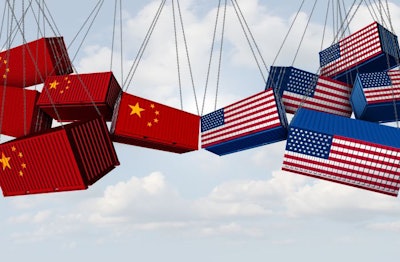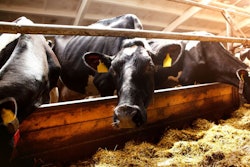
US Trade Representative Katherine Tai says US ag trade with China is ‘unpredictable’
U.S. Trade Representative (USTR) Katherine Tai said in a speech this week that agricultural trade with China is unpredictable and that the U.S. would discuss with China its performance under the phase one trade agreement.
In the first phase of the U.S.-China trade deal, reached in 2019, China agreed to purchase up to US$50 billion in U.S. farm products.
China “made commitments that benefit certain American industries, including agriculture, that we must enforce,” Tai said on October 4 during a speech at the Center for Strategic and International Studies. “I am committed to working through the many challenges ahead of us in this bilateral process in order to deliver meaningful results. But above all else, we must defend — to the hilt — our economic interests.”
Tai said the U.S. ag trade with China is “an unpredictable sector for U.S. farmers and ranchers who have come to rely heavily on this market.”
In separate comments, U.S. Agriculture Secretary Tom Vilsack said the U.S.-China relationship is complex and that it is important for the U.S. to have diverse trade relationships around the world.
“There are so many complexities to the Chinese relationship, it is fair to say that at any point in time something may impact and affect this relationship,” Vilsack said. “It is essential that we continue to look for ways in which we can diversify” to expand market opportunities around the world “and not be overly dependent on any one customer.”
China is forecast to buy record amounts of farm and food exports from the U.S. this year, but still below the amount agreed to in the trade deal.
4-part plan
In her speech and in an announcement on the USTR website, Tai detailed initial steps it is taking to re-align U.S. trade policies toward China around U.S. priorities:
“First, we will discuss with China its performance under the Phase One Agreement. China made commitments that do benefit certain American industries, including agriculture that we must enforce. President Biden will continue to promote our economic interests – and build confidence for American industry.
“Second, while pursuing Phase One enforcement, we will restart our targeted tariff exclusions process to mitigate the effects of certain Section 301 tariffs that raised costs on Americans.
“Third, we continue to have serious concerns with the (People’s Republic of China) that were not addressed in the Phase One deal, specifically related to its state-centered and non-market trade practices including Beijing’s non-market policies and practices that distort competition by propping up state-owned enterprises, limiting market access, and other coercive and predatory practices in trade and technology.
“Even as we work to enforce the terms of Phase One, we will raise our broader concerns with Beijing’s non-market policies and practices like abuse of state-owned enterprises, anti-competitive behavior and subsidies, the theft of American intellectual property directly and in coordination with our allies and partners. We will defend American economic interests using the full range of tools we have and by developing new tools as needed.
“And lastly, we know that we cannot do it alone. We will continue consulting and coordinating with allies and partners who share our strong interest in ensuring that the terms of competition are fair, work collectively to set the rules of the road for trade and technology in the 21st century, and strengthen the global market for our workers and businesses.”










